<B>FORT STEWART, Ga.</B>- The sky is still dark as Soldiers from 1st Heavy Brigade Combat Team roll up on the Metz Military Operations in Urban Terrain site on Fort Stewart, Aug. 15.
Inside the large troubled town are insurgents, Iraqi forces, key leaders and civilians, each with their own problems. Inside the outer perimeter created by Bradleys, Iraqi police members played by Soldiers act confused as they asked for answers to why this is happening. A senior noncommissioned officer steps in and diffuses the situation, explaining the scenario. In preparation for their National Training Center Training, 1HBCT conducted Raider Focus training from late July to early August. The training was the first training event for the entire brigade and focused on scenarios the brigade may face while deployed, primarily on assisting the Iraqi Forces in accomplishing their mission of stabilizing Iraq.
"A lot of my guys have been on previous deployments and it's nothing like what we are doing now," said 2nd Lt. Donald Kominek, Company D, 3rd Battalion, 69th Armor Regiment. "This training is vital to helping the Iraqi forces."
The training was particularly hard on veterans of Operation Iraqi Freedom, as the U.S. Army's mission has changed toward helping Iraqi Forces.
"The importance of this mission is it will help us learn how to de-escalate our forces and posture when we roll up on a mission," said Capt. Kelvin Robinson, D Co., 3/69 commander. "Because we gave control back to the Iraqi forces, we will have to learn how to put them in the lead and assist them. A lot of guys like myself coming off of three previous deployments make it a hard lesson to learn."
Raider Focus was separated into three parts in order to train Soldiers from a company-level mission, to a battalion-level mission, to finally, a brigade-level mission.
"The scenario went well," said Capt. Jonas Anazagasty, B Co., 3/69 commander, about a company training exercise, "we had a lot of different things we were going to train on. We had some tactical aspects as well as dealing with locals we had to work with along with the Iraqi police."
Captain Anazagasty also stressed the importance of the training when it comes to the Soldiers he leads.
"These training scenarios are important because when guys join the infantry there's something in them that says they want to be a part of this life," said Capt. Anazagasty. "It's difficult to not get tunnel vision and accomplish our combat arms tasks; however, the war we are facing right now is full spectrum. So the training was good because it refocuses the guys on the basic tasks to execute missions. We still have some things internally we need to work out, but we are our own worst critics."
The battalion level training had the same scenarios on a much grander scale in order to use every Soldier within the battalion. Battalion commanders met with key leaders in villages, military intelligence Soldiers dug up intel, and Bradleys and tanks worked together to provide security to a massive ground force.
"I felt that we were prepared," said Lt. Col. Joel Hamilton, 1st Battalion, 41st Field Artillery commander. "I know my Soldiers have trained long and hard for situations like this. I did not expect the level of frustration that we witnessed [in the town] today; however, we did manage to get all of our personnel out."
But the main focus of the mission, said Lt. Col. Hamilton, were the civilians of the town.
"The focus was about identifying projects, looking at opportunities for employment for the townspeople," he said. "The importance is to make the systems sustainable so that when we leave the country Iraqis can truly solve their own problems."
The brigade-level mission took place at Metz MOUT site and involved entire battalions entering a large town and securing the perimeter. Once on the site, the situation suddenly changed for the brigade as insurgents came from all sides and attacked the Soldiers. Civilians rioted as role-playing Sunni and Shiite extremists attacked one another and Iraqi forces tried to diffuse the situation.
"Having two Iraqi deployments under my belt, I have seen situations similar to the one today," said Lt. Col. Hamilton. "It really gives you an appreciation for doing your homework and researching the demographics and atmospherics in terms of what specific towns need in essential goods and services. You could very realistically find yourself in a scenario where your boundaries are relocated, and you find yourself dealing with a town that may not have had coalition interaction before. I think in doing this training we will be more successful in doing these missions."
The brigade also stressed the importance of media training by using role-players to act as aggressive journalists.
"The most important thing I will be taking out of this training is that my Soldiers have an appreciation for what media can do for them on the battlefield," said Lt. Col. Hamilton. "That camera tells a story, and it's important for our Soldiers to know that when a camera is filming you can use it as you would a weapon to gain your objectives. Our objectives are to legitimize our presence. We don't need to feel threatened by the media, just prepared to deal with them."
Three helicopters fly over the tree line toward the city as the residents settle down with the insurgents detained. The helicopters sling-load water, rations, ice and popsicles and the Soldiers and Iraqi Forces prepare to administer humanitarian aid. The mission with its multiple scenarios was a success for the brigade, and although only three weeks long, Raider Focus will pave the way for Soldiers to assist Iraqi Forces while deployed.
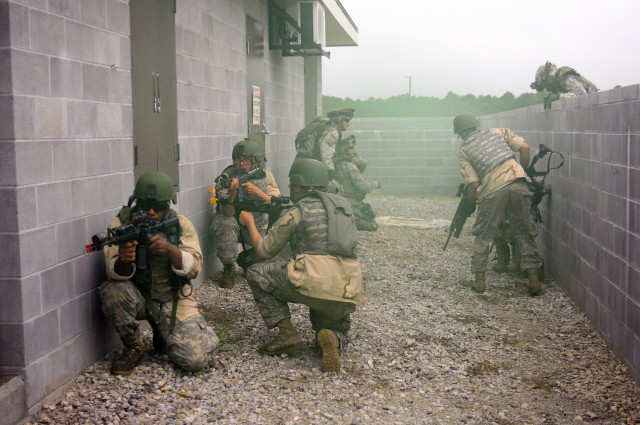
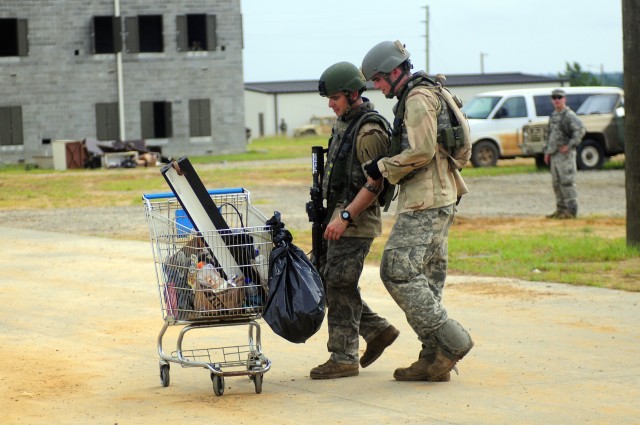
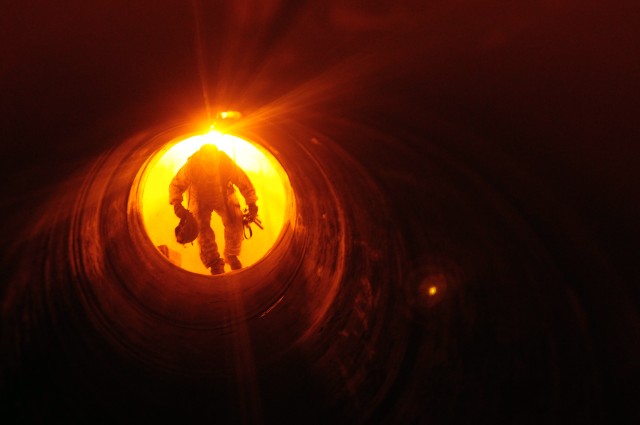
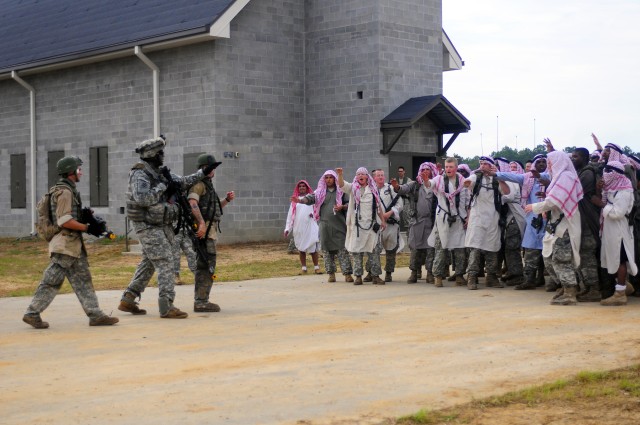
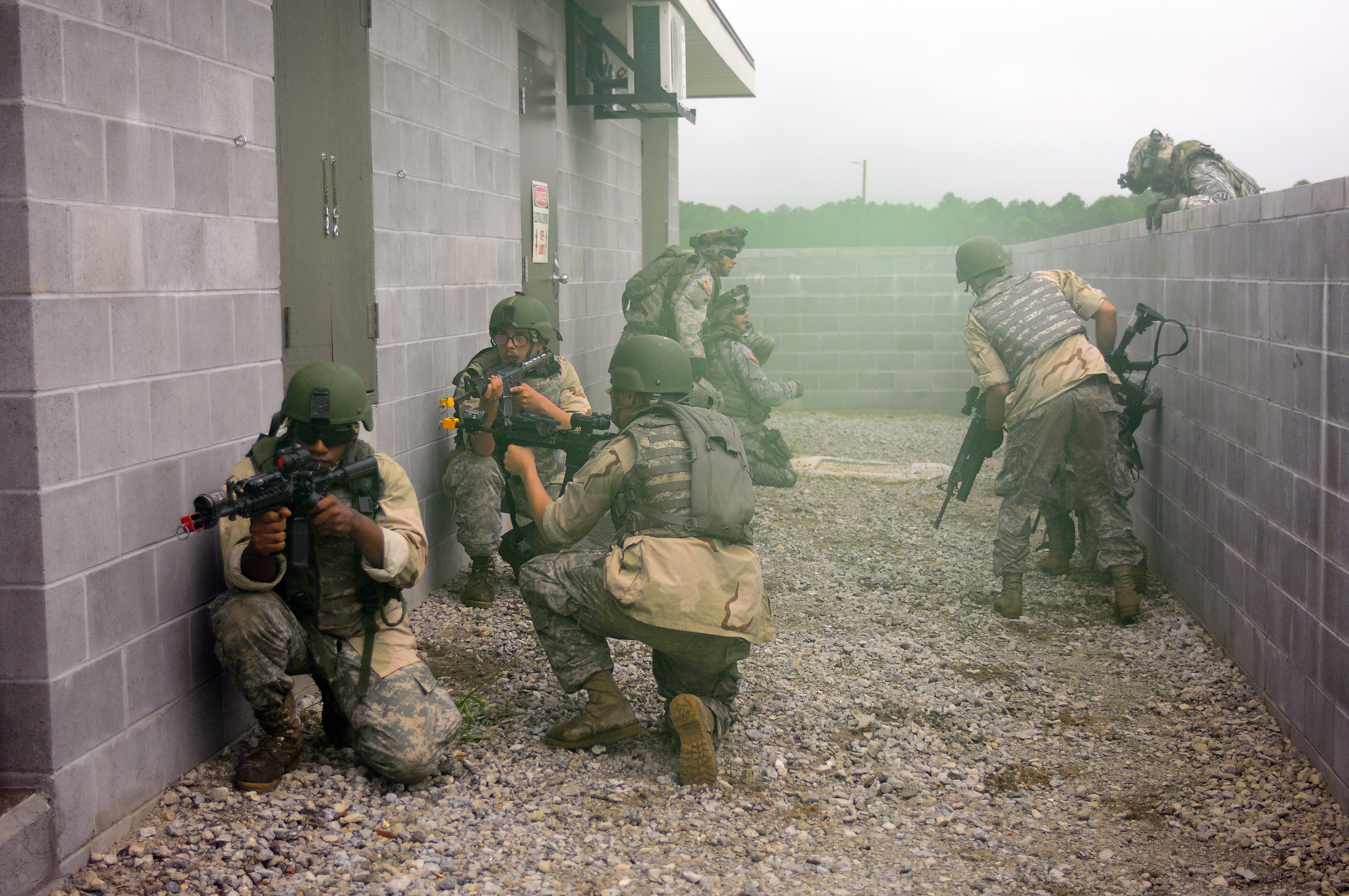
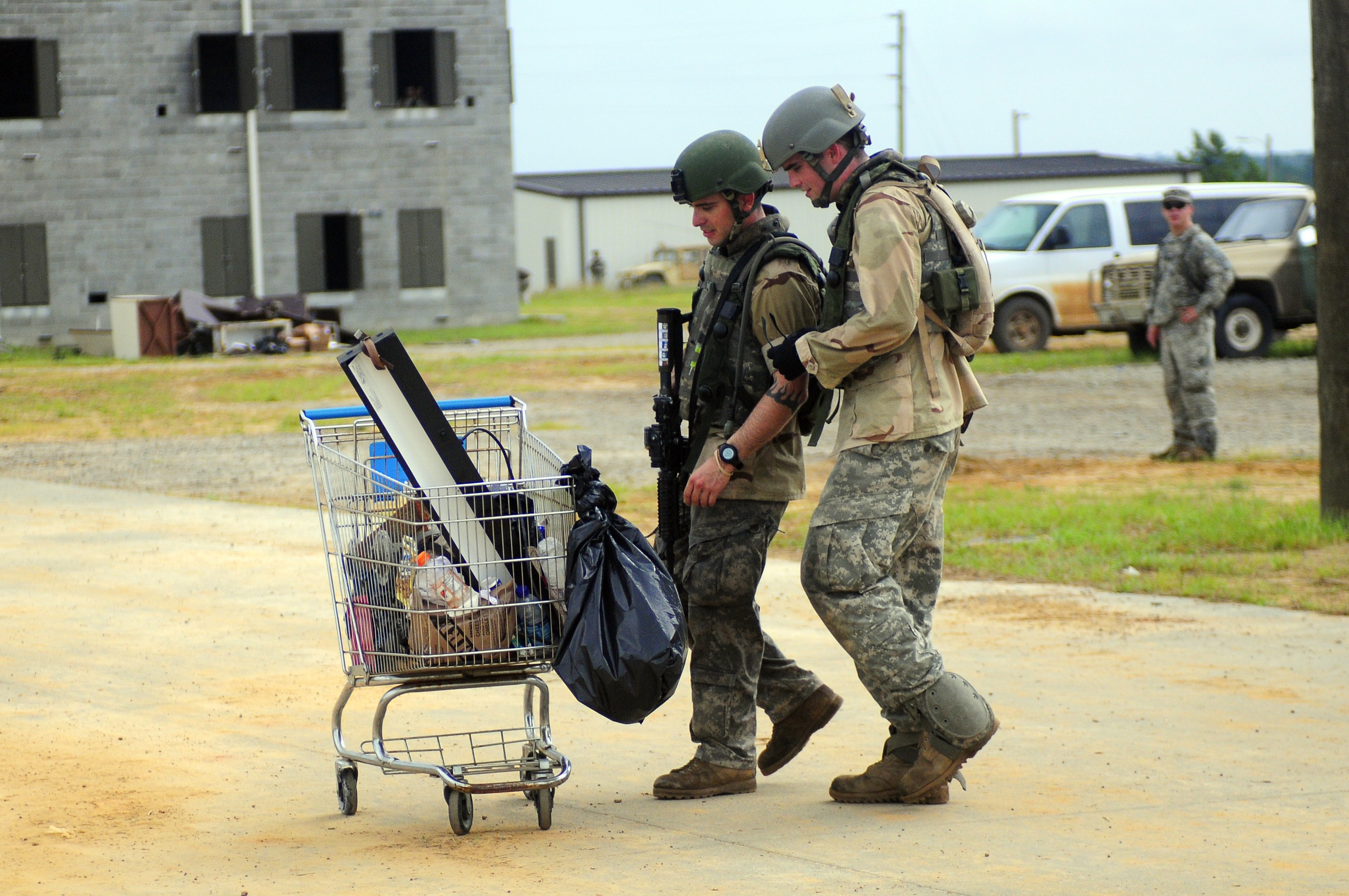
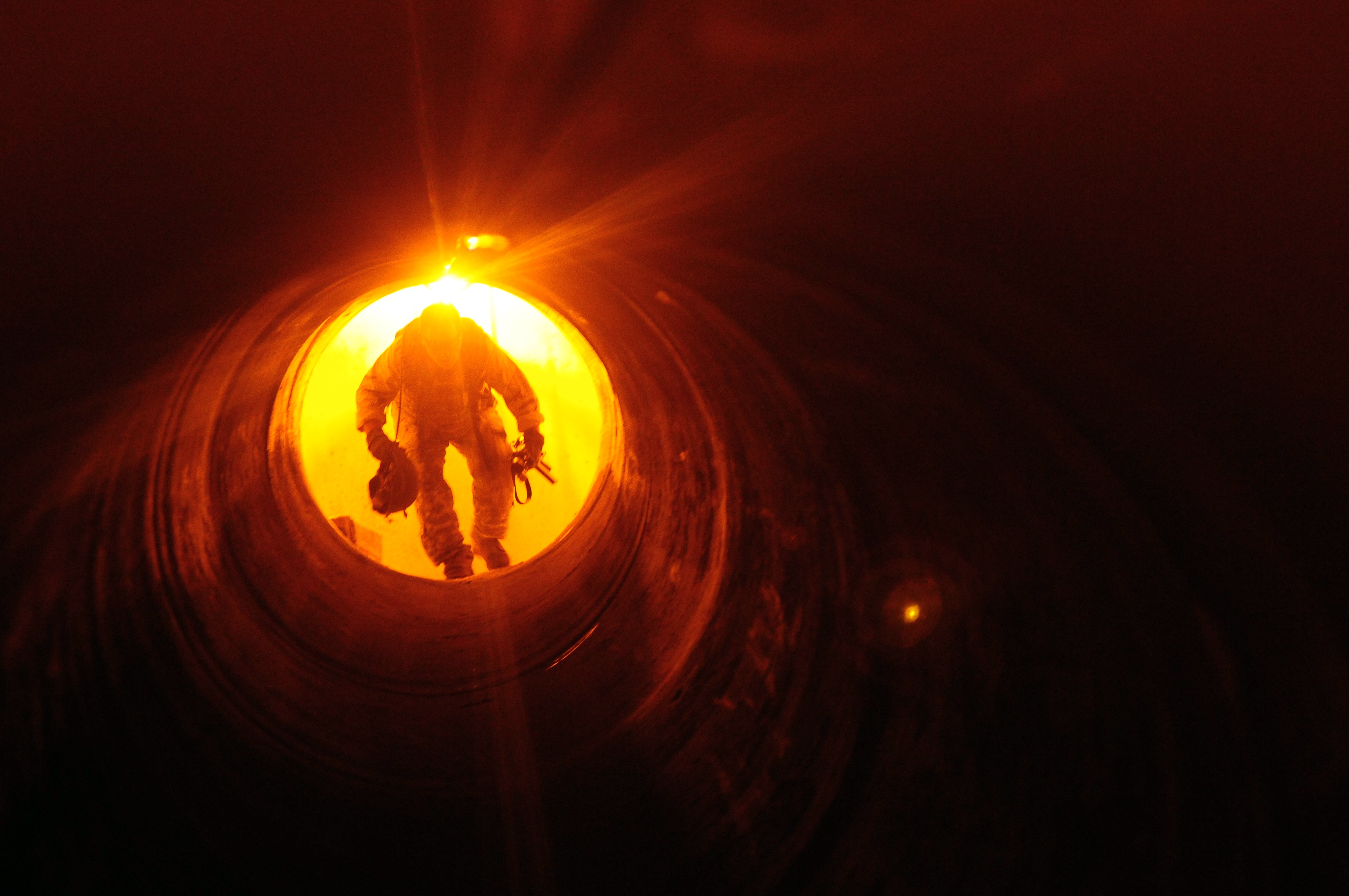
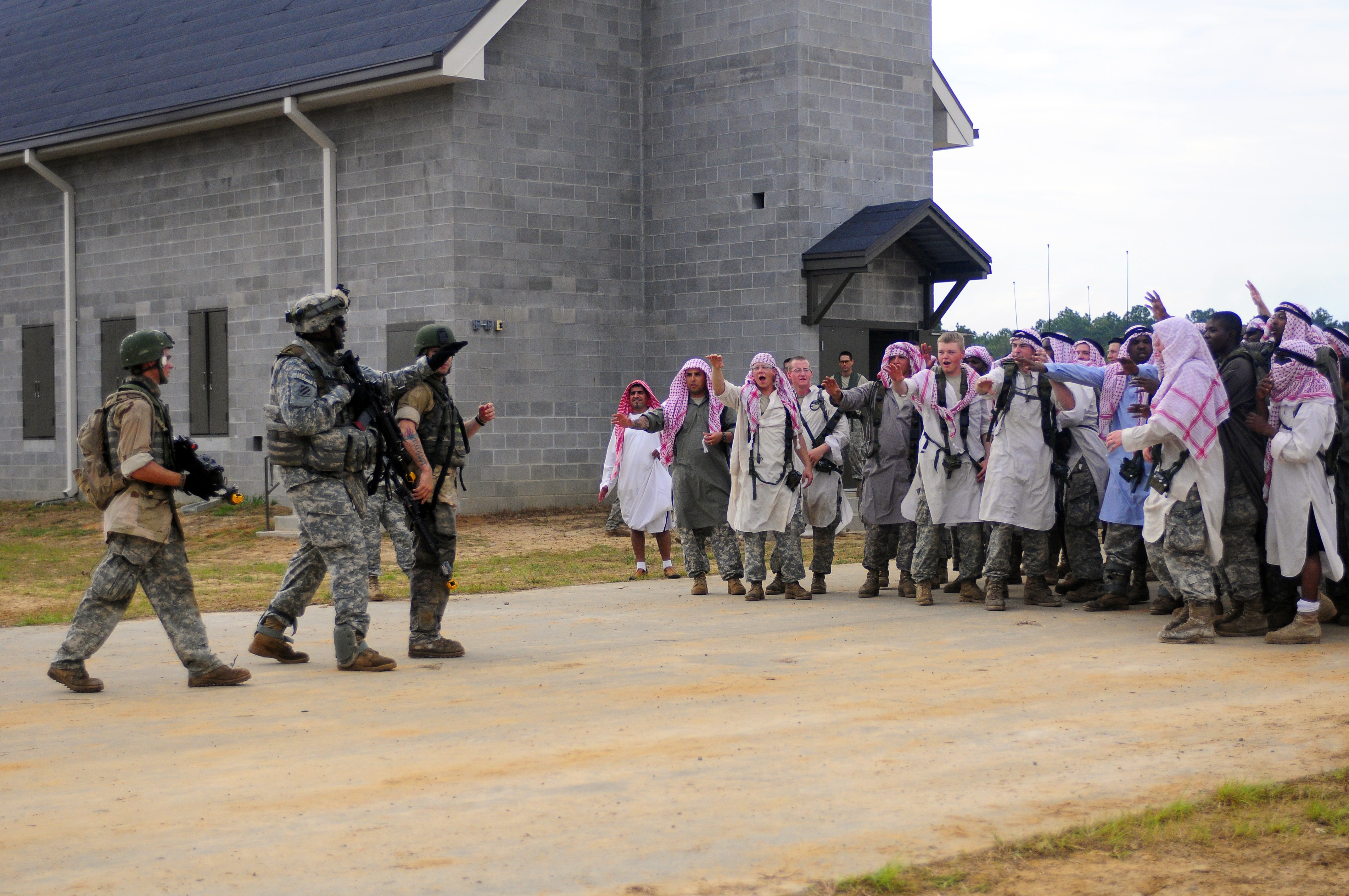
Social Sharing